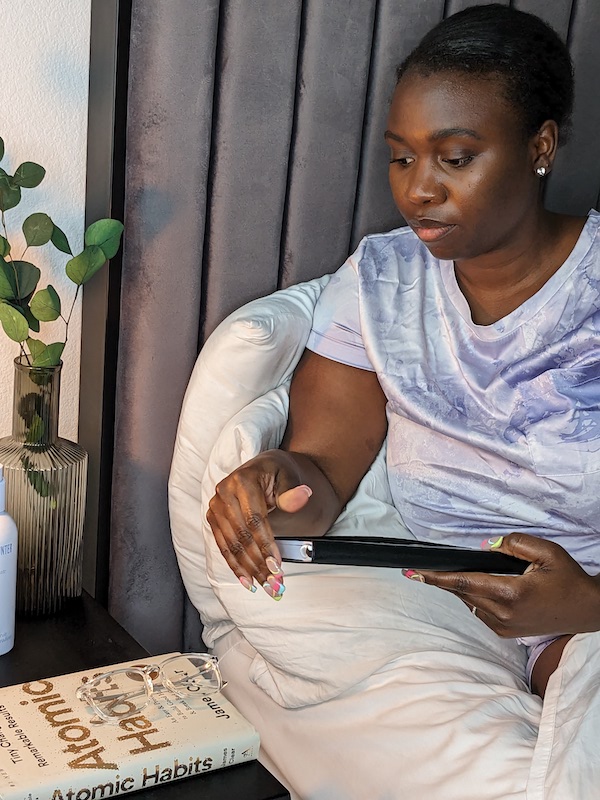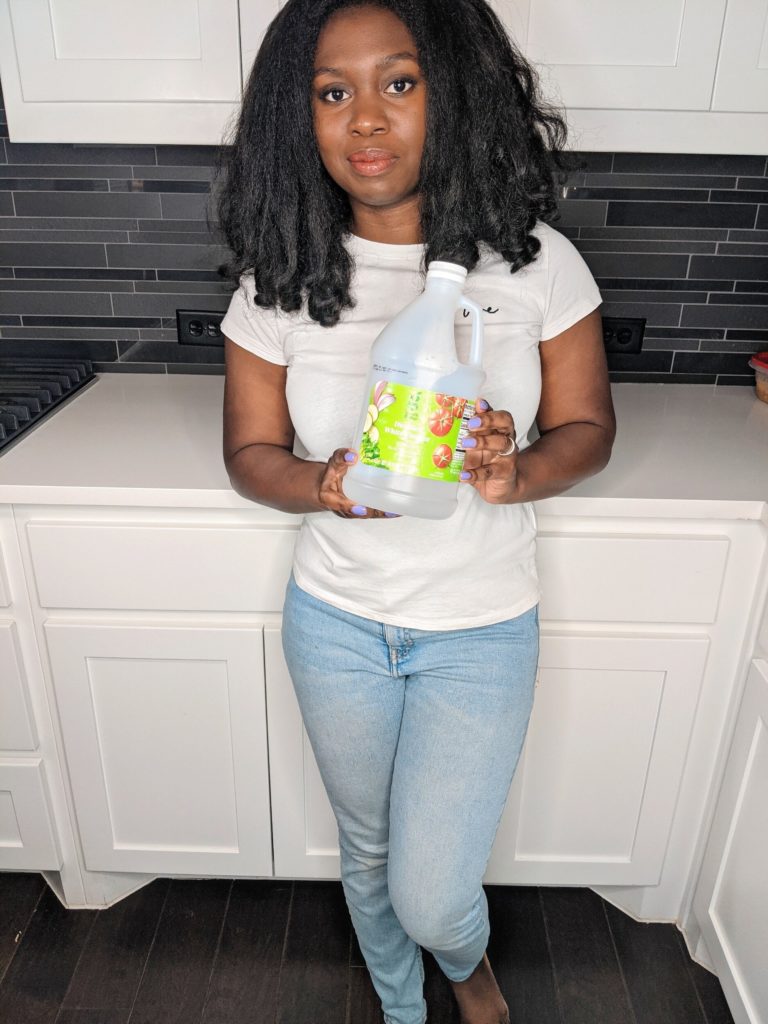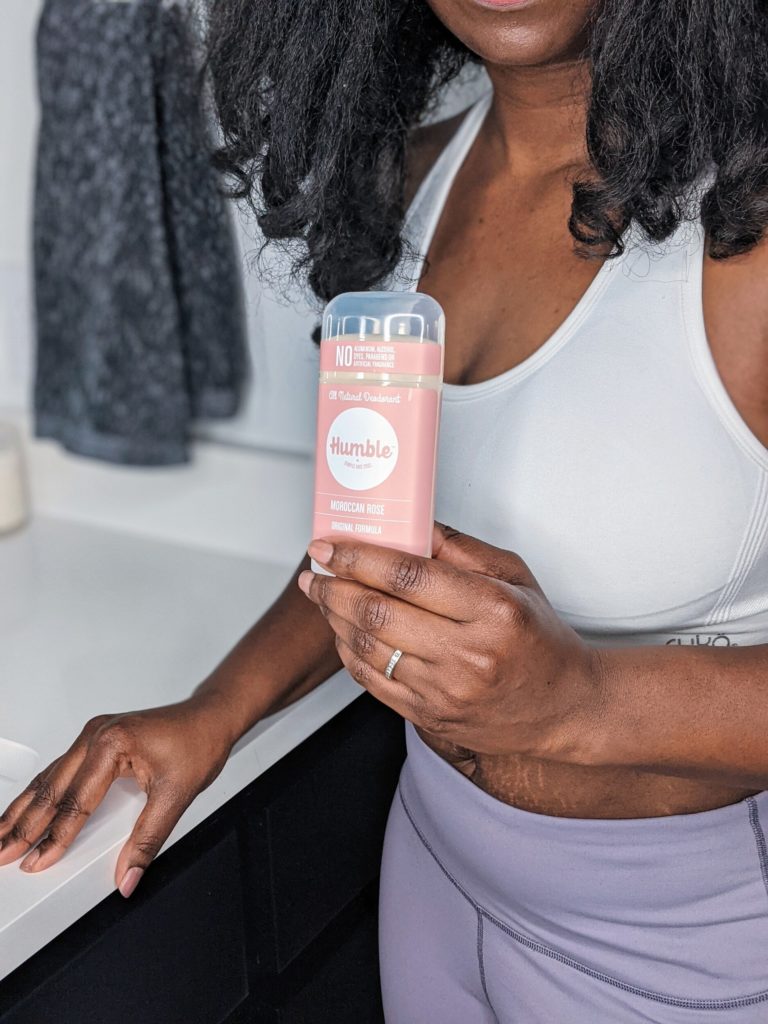14 Tips for Balancing Your Hormones
If you’re trying to improve your overall health, you’ll want to focus on balancing your hormones. Think of hormones as messengers that impact every aspect of your wellness, including how your brain and body work.
Achieving better hormonal health requires lifestyle changes that include better eating habits, becoming more mindful of your environment, and managing stress. These are my go-to tips for balancing your hormones:
1. Eat More Balanced Meals

Balanced meals and snacks help regulate insulin levels and prevent blood sugar spikes and dips. A good rule of thumb is to include at least three of the following: quality protein, fiber, unprocessed carbs, and healthy fats.
Meal prepping is an excellent way to stay on track, and I have this guide to help you create balanced meals.
2. Get Adequate Protein
Protein is essential to several bodily functions and processes, including blood sugar stabilization, pituitary gland and thyroid function. The amount you need depends on your activity level and weight management goals. To get more, try adding protein to every meal to meet your intake needs. I have a whole post about protein, so don’t miss it!
3. Know Your Cycle
Tracking your cycle and noting your symptoms can help give you more clues about what’s going on with your hormones and where you might need more support. Use my cyclical living planner to note your symptoms. You can reference this information when speaking to your doctor.
I also have a free period tracker, which can help you see any patterns in your cycle. Get it here!
4. Fiber at Every Meal
Personally, I consider fiber just as important as protein when it comes to hormone health. Fiber helps promote detoxification of excess hormones like estrogen and xenoestrogens. It also promotes better gut health which plays a role in better hormonal health.
5. Seed Cycling
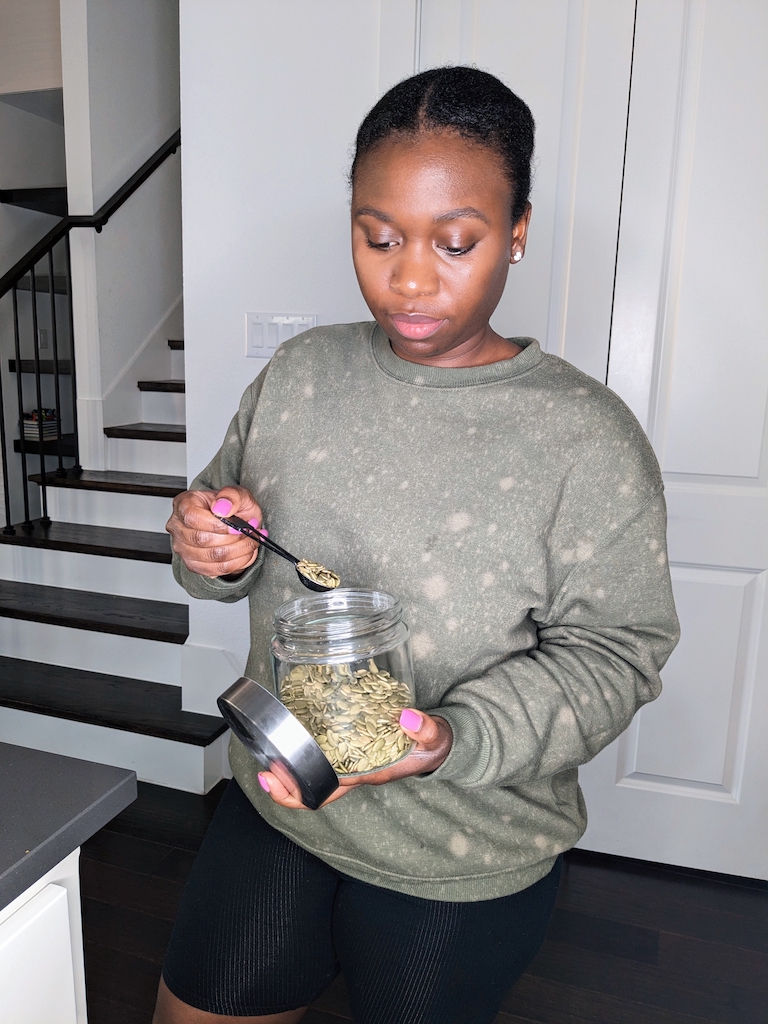
Seed cycling is one of my favorite hormone hacks. It was one of the first things I tried when I began my journey with fibroids. Take one tablespoon of flax or chia and one tablespoon of pumpkin seeds daily from days 1-14. And one tablespoon of sesame seeds and one tablespoon of sunflower seeds from days 15-28. Learn more about seed cycling here.
6. Daily Movement
Not only should you be moving daily, but you should also try to make it something you enjoy doing. Lately, I’ve enjoyed walks while listening to some fiction on Audible. If it’s been challenging to keep up with a daily movement routine, check out this post where I go into depth on how to create an exercise habit that sticks.
7. Cut the Screentime at Night
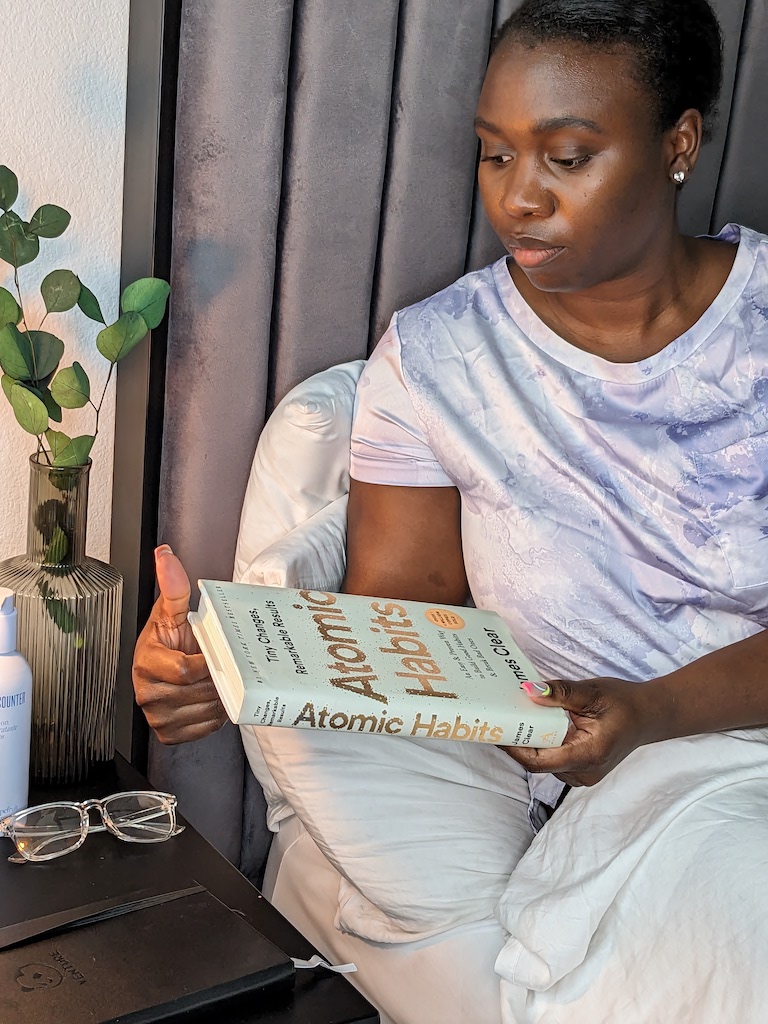
If you want to get better quality sleep, ditch the screens at night. Blue light from phones and laptops can delay the release of melatonin and make it difficult to fall asleep and get good quality sleep.
8. Get Enough Sleep
Sleep is the prime time for your body to rest and regenerate. Lack of good quality sleep can lead to imbalances in hormones, especially cortisol and insulin.
9. Manage Stress

Too much stress can lead to inflammation and poor gut health. Inflammation in your gut can make it difficult to digest food and get the nutrients you need to promote hormonal health. I have a post about how to manage stress here.
10. Avoid Inflammatory Foods
One of the biggest markers of imbalanced hormones is inflammation, especially inflammation in the gut. Avoid artificial ingredients, seed oils, and excess sugars. Out of all of my tips for balancing your hormones, this one is the trickiest, so I recommend going over inflammatory foods with a nutritionist.
11. Get More Vitamin D

Vitamin D deficiency has been linked to several hormone-related conditions including fibroids. You can produce vitamin D through sunlight exposure. However, most people, especially people with dark skin may still need to supplement or focus on vitamin D rich foods like oily fish, beef liver and mushrooms.
12. Check Your Medications (birth control, etc.)
Some medications, including birth control, can cause hormonal imbalances. If you’re experiencing issues that seem to be related to your hormones, let your wellness provider know so they can determine if your medications may be contributing to your issues.
13. Make Healthier Home Swaps
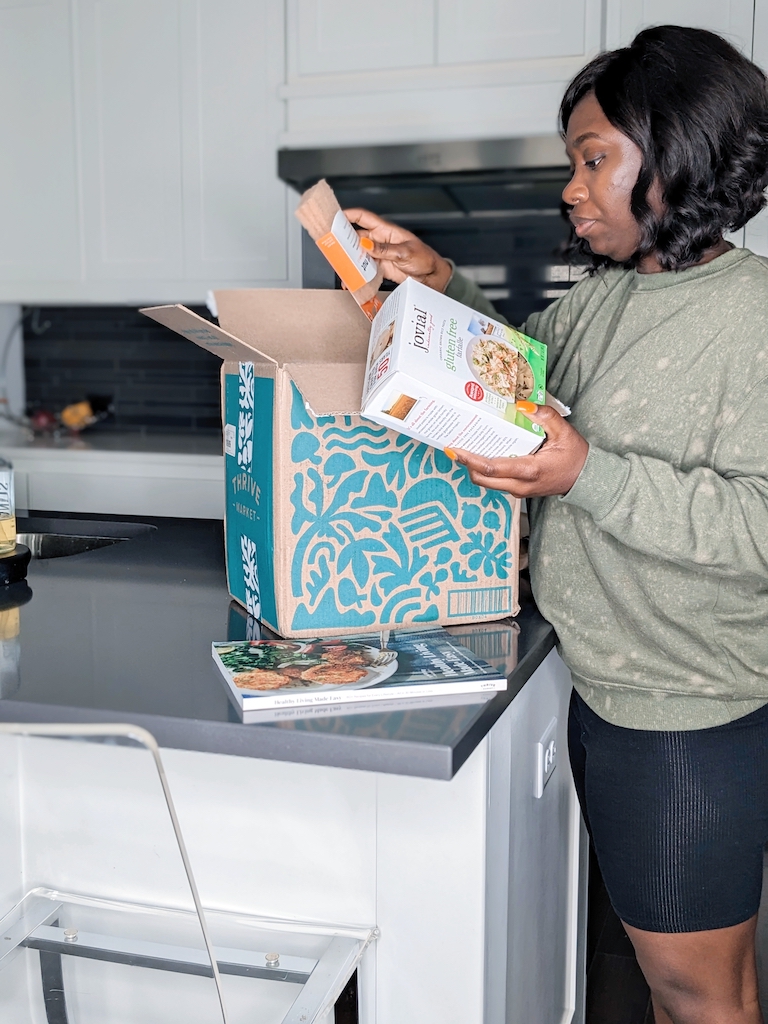
Unfortunately, furniture, kitchenware and cleaning products often harbor endocrine-disrupting chemicals. Furniture’s a tough category to avoid toxins but you can find companies that have better manufacturing practices. Cookware and cleaning products are some of the easier items to switch to safer products.
14. Switch to Clean Personal Care
Due to the lack of regulation in the personal care and beauty industry, many products are laden with endocrine disruptors and other harmful chemicals. These substances can contribute to hormonal imbalances. One of my favorite brands for clean beauty products is Beautycounter.
Following these tips for balancing your hormones is one of the best ways to improve your well-being. Try implementing these tips you’ll be on your way to more energy, a better mood, and even better weight management.

